Zac Efron's Extreme Quest to Reinvent Himself

WELL, THERE THEY ARE. After Zac Efron removes his jacket and drapes it over the chair beside him, my eyes immediately zoop to his biceps peeking out from beneath his T-shirt. I spot a vein so protuberant that it looks like it’s about to exit his skin.
I had seen Efron’s biceps earlier, while on set for his photo shoot. When I got to the ranch in the hills north of Malibu, he was zooming about on an ATV, doing wild circles around the photographer and creating a cloud of dust. The sharp lines of his arms were apparent even through a dust tornado and even from a safe distance away.
When he arrives at the steakhouse in Thousand Oaks, where the staff has squirreled us away in a back room behind the kitchen, Efron positions himself as though to background the biceps—leaning forward, with his hands loosely intertwined on the table—and I feel louche for peeking.
I feel even loucher for writing about them, but the thing is, Efron’s arms have become part of his whole deal, appendages to his identity as well as to his torso—to say nothing of the torso itself. In 2017’s Baywatch, his onscreen abs looked almost painted on. That film was a fit-guy debutant waltz for Efron. People started looking very closely at his body after that.
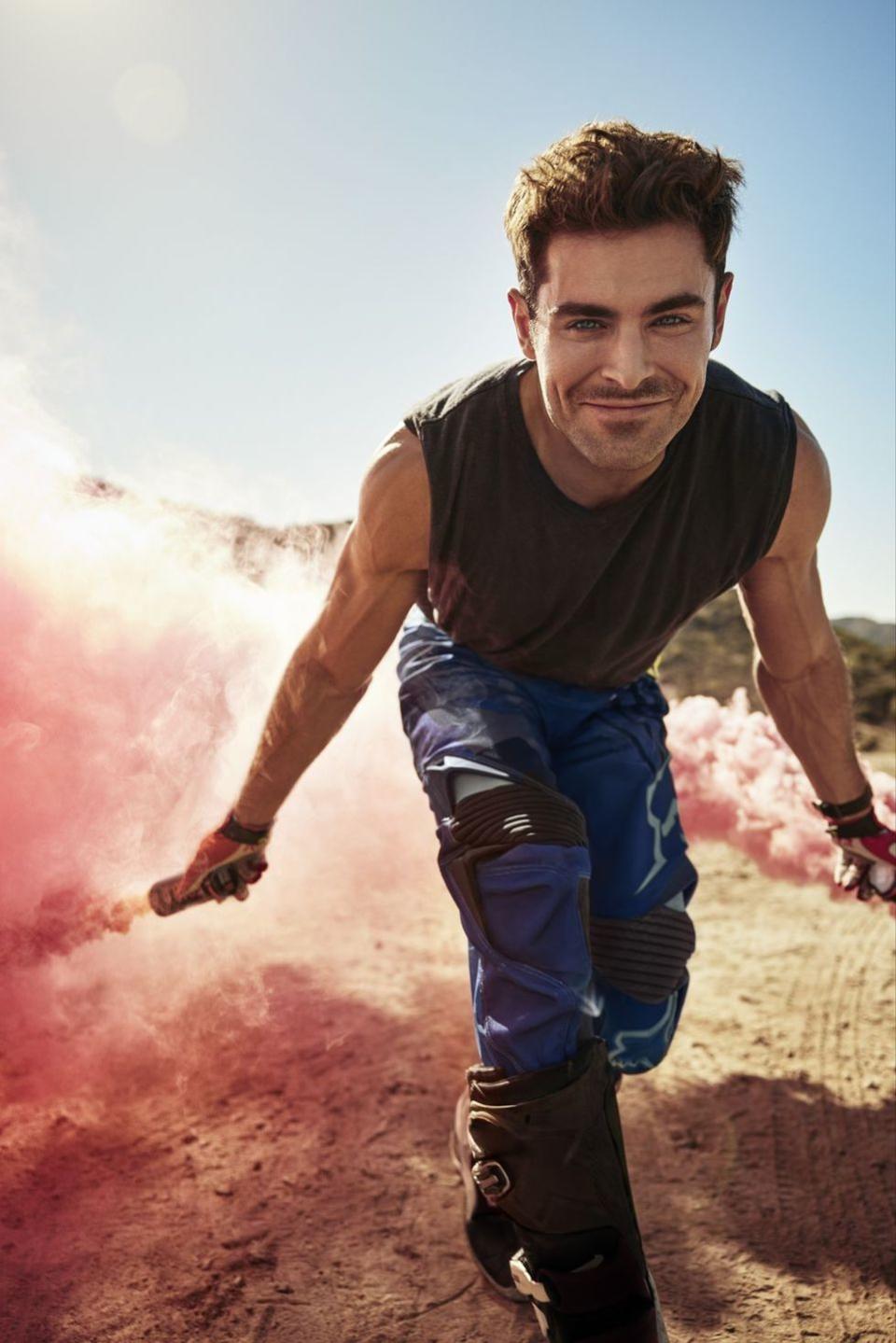
Efron has been under scrutiny since 2006, when, at age 17, he played a wholesome, peppy, Bieber-haired Disney jock in High School Musical. Next, he starred in a slew of romances, rom-coms, and com-coms: Neighbours, The Lucky One, We Are Your Friends, That Awkward Moment, Mike and Dave Need Wedding Dates, et cetera ad infinitum. His list of titles is stunningly long, and wildly varied, for someone so young; after Baywatch, he began veering toward dramas and shot a Netflix travel show about sustainability called Down to Earth with Zac Efron. (Season 2 drops in late fall.)
Then the pandemic hit, and the guy who could do it all—and who, since he was a teenager, had been doing it all, all the time—did very little. He sequestered himself in Byron Bay, a beachy haven in Australia. He slept on a hammock in the trees. He dated a civilian. He took moonlit swims with phosphorescent plankton that glowed around him with every motion.
Meanwhile, everyone else was still talking about his body. In July 2020, as Netflix viewers began watching Down to Earth, some commented on his “dad bod”—which, to be clear, was a dad bod only relative to his lifeguard bod. The New York Post called it “a far cry from his ripped physique in Baywatch”; Twitter called him Daddy.
A world away, Efron, too, was rethinking the body he’d become known for. He was reconsidering how he ate (vegan), how he trained (really hard), and how he slept (poorly). Efron, like many of us, has newly emerged from his own pandemic cocoon, blinking in the sunlight, ready to unfurl a revamped personality with back-to-school optimism. Besides a new health and fitness philosophy, Efron has a new movie—The Greatest Beer Run Ever (premiering September 30 on Apple TV+), in which he acts opposite Russell Crowe and Bill Murray—and new career cravings.
In this chapter of Efron’s career, he is seeking depth. He looks to Leonardo DiCaprio as a North Star, both as an actor who seems to have achieved balance in his life and for the roles he selects; ditto Robert Pattinson, another veteran of teen stardom. But Efron, now 34 and with 16 years and a stack of films between him and High School Musical, still hasn’t found the niche that will carry him through the next few decades. He has done demanding physical transformations for roles. Now he’s after a much deeper transformation.

EFRON PREFERS TO do Los Angeles in “small doses,” popping in to visit friends and take meetings. Eventually, he plans to return to Byron Bay, where he reportedly owns land, but otherwise he’s pretty transient. “I’m in a van trying to travel and see as much of the world as I can, or just hiking in the woods and camping.” He certainly doesn’t overburden himself with personal effects: He says he has ten T-shirts, five pairs of workout shorts, a couple pants, a couple sweatshirts, and two Lululemon shorts-and-hoodie tracksuits that he wears all the time, “and that’s pretty much it.”
As we peruse the menu at the steakhouse, he reveals that this is his first meal out in a long time. He’s the kind of actor around whom fans lose their faculties, and he’s also the kind of actor whom people feel comfortable approaching.
I get it. He has a very welcoming face, in spite of intimidatingly symmetrical and chiseled features. His eyes are blue and twinkly, and whenever he’s not smiling, he looks like he’s about to. He has played several very approachable characters, the type of guys a friend of mine calls “self-aware bros.” He also played Ted Bundy in Extremely Wicked, Shockingly Evil and Vile, but that doesn’t put anyone off.
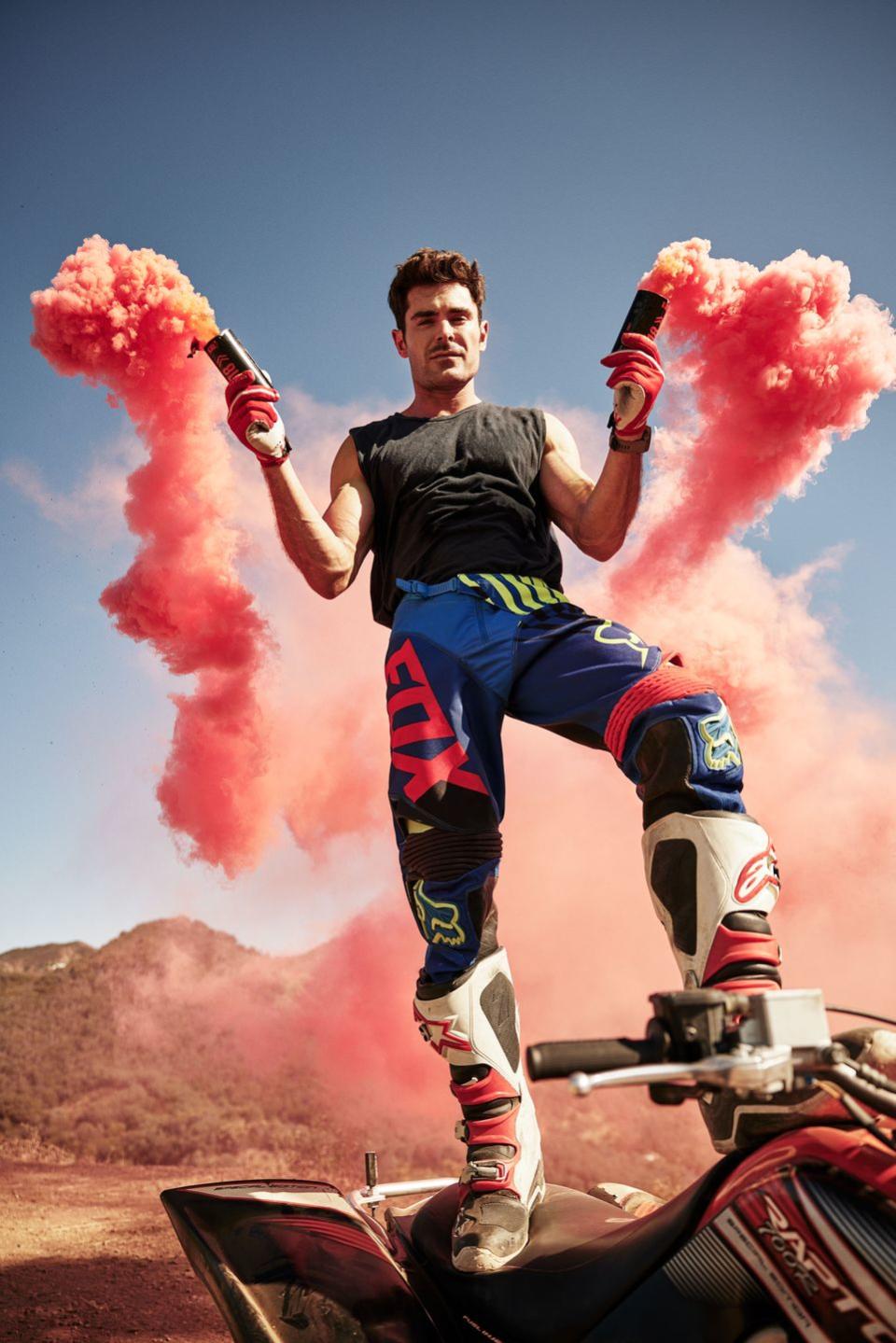
“I just don’t go out. People in large groups, it triggers my agoraphobia,” he says. It’s a jarring comment from Efron, who seems to have a compulsive desire to put those around him at ease, mirroring and doubling the energy of whoever is before him. Our server, Erin, arrives and begins to describe the menu’s features. Erin is bubbly and sharp, and I watch each one trying to outdazzle the other. “Oh wow,” Efron says as Erin extols the virtues of the seafood tower, his eyes trained on her with evangelical ferocity. By the time she gets to the meat—to, in particular, the Japanese A5 Wagyu steak—Efron is in raptures. Once he has ensured that the meat is grass finished rather than grass fed, he cajoles me into splitting the A5. We will also split a filet mignon, as well as a seafood tower and two sides. “I’m bulking,” Efron says, laughing as he hands his menu back to Erin. When she’s gone, he says, “I can’t believe I said that,” as though it’s too Zac Efron a line for Zac Efron.
I had been curious to see what and whether someone with Efron’s exacting physique would eat at a steakhouse. It turns out his vegan days—partly inspired by his Down to Earth cohost, wellness expert Darin Olien—were short-lived. After two years, Efron noticed he felt depleted, and he began to wonder what would happen if he started eating everything again. (That didn’t make him feel great, either, but following a battery of food-sensitivity tests he’s settled on a protein-heavy plan; he also drinks some apple-cider vinegar before most meals.) “Morally, of course, I still wish I was vegan,” he says. But tonight, he will feast on the fauna of land and sea.
The seafood tower comes shortly thereafter, an arrangement of crab claws and oysters on a mountain of crushed ice, topped by a basin of dry ice, which drifts out from below a tureen of Dungeness crabmeat. Efron actually is bulking, he explains, for a yet-to-be-announced role, but he isn’t preparing with the same fervour he brought to his Baywatch training. He doesn’t want that body anymore. Or rather, he doesn’t want to do what he did to achieve that body. “That Baywatch look, I don’t know if that’s really attainable. There’s just too little water in the skin. Like, it’s fake; it looks CGI’d,” he says. “And that required Lasix, powerful diuretics, to achieve. So I don’t need to do that. I much prefer to have an extra, you know, 2 to 3 percent body fat.”
Beyond taking diuretics, he was overtraining and eating the same three meals every day. And he wasn’t sleeping enough; if filming stopped at midnight, he would still wake up at 4:00 A.m. to train. Initially he was excited about Baywatch—he thought it could be a fun action franchise, and he liked his character—but the recovery walloped him. Efron says he doesn’t want to sound like he’s complaining, but he’s opening up now because he wants people trying to obtain the Baywatch body to know how devastating the process was for him, and how long the ill effects of his training lasted.
“I started to develop insomnia,” he says, “and I fell into a pretty bad depression, for a long time. Something about that experience burned me out. I had a really hard time recentering. Ultimately they chalked it up to taking way too many diuretics for way too long, and it messed something up.” Six months after the film wrapped, he finally began to feel right again.
It wasn’t until his Australian sabbatical that he really started to reevaluate his approach to fitness. For the first time in his working life, Efron had a window to take a real break. And to fall out of shape.
“At one point, that was a dream of mine—what it would be like to not have to be in shape all the time,” he says. He had been acclimated to a certain level of fitness since he was a kid, joining his father on runs. “What if I just say, ‘Fuck it’ and let myself go? So I tried it, and I was successful. And for all the reasons I thought it would be incredible, I was just miserable. My body would not feel healthy; I just didn’t feel alive. I felt bogged down and slow.”
But even if he wasn’t training, he was thinking about training. He read a lot—he felt particularly aligned with turbo athlete David Goggins and his “stay hard” doctrine after reading Can’t Hurt Me—and sought advice from biohacking experts like trainer Ben Greenfield. “I enjoy pushing myself and really laying it all out, to the point where I kind of have to do it. Otherwise I don’t feel like myself,” he says. He wanted to keep training militantly—his fitness philosophy is one of embracing constructive misery—but more mindfully.

He’s now a foam-rolling fanatic and has ten or so foam rollers of all different sizes; he does it for half an hour before training and a full hour before bed. He champions stretching, self-massage (“I live attached to a Theragun”), and yoga. Efron has also become an ice-bath adherent. “It’s my favourite part of the day. Before is when it’s most miserable, and when you finally just commit and jump in there. From that point forward, you’ve conquered something deep within you; you do not want to get cold,” he says. “That’s the simplest philosophy: Anything you don’t want to do, make it a habit.”
Thanks to the harsh lessons of his post-Baywatch recovery, Efron had a new awareness of injury. About four years ago, in the span of a year and a half, he tore his ACL, dislocated his shoulder, broke his wrist, and threw out his back. He also shattered his jaw, he says, though that was not a training injury. He’d been running through his house in socks and slipped, smacking his chin against the granite corner of a fountain. He lost consciousness, and when he woke up, he recalls, his chin bone was hanging off his face.
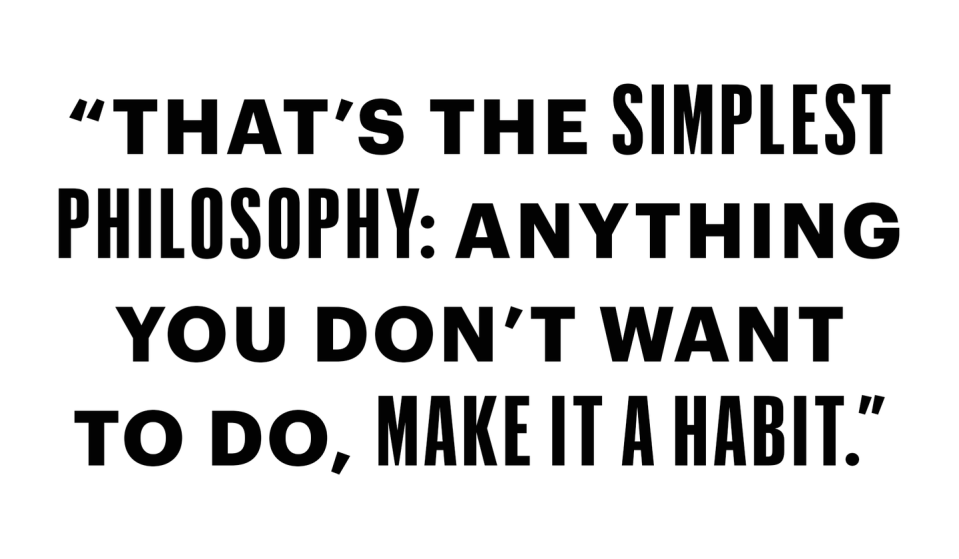
I study him as he eats a crab leg. His jaw area looks much as it has always looked. This may be salient intel for some, because in April 2021, after Efron appeared in a clip promoting an Earth Day special from Bill Nye, the Internet again came alive with chatter about Efron’s body, this time with speculation that he had had plastic surgery on his face.
When I ask him about this, he tells me that the masseter muscles, used for chewing, work together with the other muscles of the face “like a symphony”; when he was injured, the muscles on the inside of his face and jaw had to compensate. He works with a specialist and does physical therapy to mediate this, he says, but in Australia he took some time off from that, too. “The masseters just grew,” he says, shrugging. “They just got really, really big.”
Efron says he didn’t know about Jaw-gate until his mother called to ask if he’d gotten plastic surgery, because, though he appreciates that social media can be useful for promoting projects he cares about, he generally avoids it. This is a survival tactic, one that he has been honing since he became a public figure at 17. “If I valued what other people thought of me to the extent that they may think I do,” he says, “I definitely wouldn’t be able to do this work.”

PERHAPS AS A result of his detachment from his digital public, Efron is candid about most subjects. He doesn’t shy away from questions about his romantic life, for instance, though he says he wishes there were more to say. “I’ve really been taking time to focus on, you know, self- fulfillment and trying to find my groove. I know that probably when I meet the right person, it’s going to be when I least expect it.” (When I point out that that kind of talk is likely to earn him a torrent of DMs on Instagram, he admits that not being able to communicate with certain people on Instagram directly is one of his few laments about distancing himself from social media, then sighs. It’s a “can of worms.”)
He speaks most carefully about his film roles and seems anxious not to appear flippant. Once we’ve made some headway on the seafood, I ask Efron what drew him to The Greatest Beer Run Ever. While he’s jovial and off the cuff during the rest of our conversation, as he talks about the film, his voice gets quieter, his wording more precise.
The Greatest Beer Run Ever is based on the memoir of the same name by John “Chickie” Donohue, who set out, in November 1967, to deliver beer to all his hometown friends who were fighting overseas in Vietnam. At first glance, Efron is playing a version of some of his past comedic roles, a himbo in a war zone.

But the character’s humbling is gradual and profound. Just as gradually, the humor of the first half gives way to the horrors and complexities of war. The final quarter of the film is very visceral, surprisingly so if you jumped in expecting a PBR-themed buddy-com.
Though Efron was underwhelmed by the roles he was being considered for at the time, he was instantly taken with The Greatest Beer Run Ever, written and directed by Oscar winner Peter Farrelly of Green Book, a film that the Internet panned but Efron—and, controversially, the Academy—loved. “Sometimes reading a script can take two days,” he says. “I’m stopping and visualising it and rereading pages. Sometimes I’m mouthing words. But with Greatest Beer Run, the writing was so specific and so clear.”
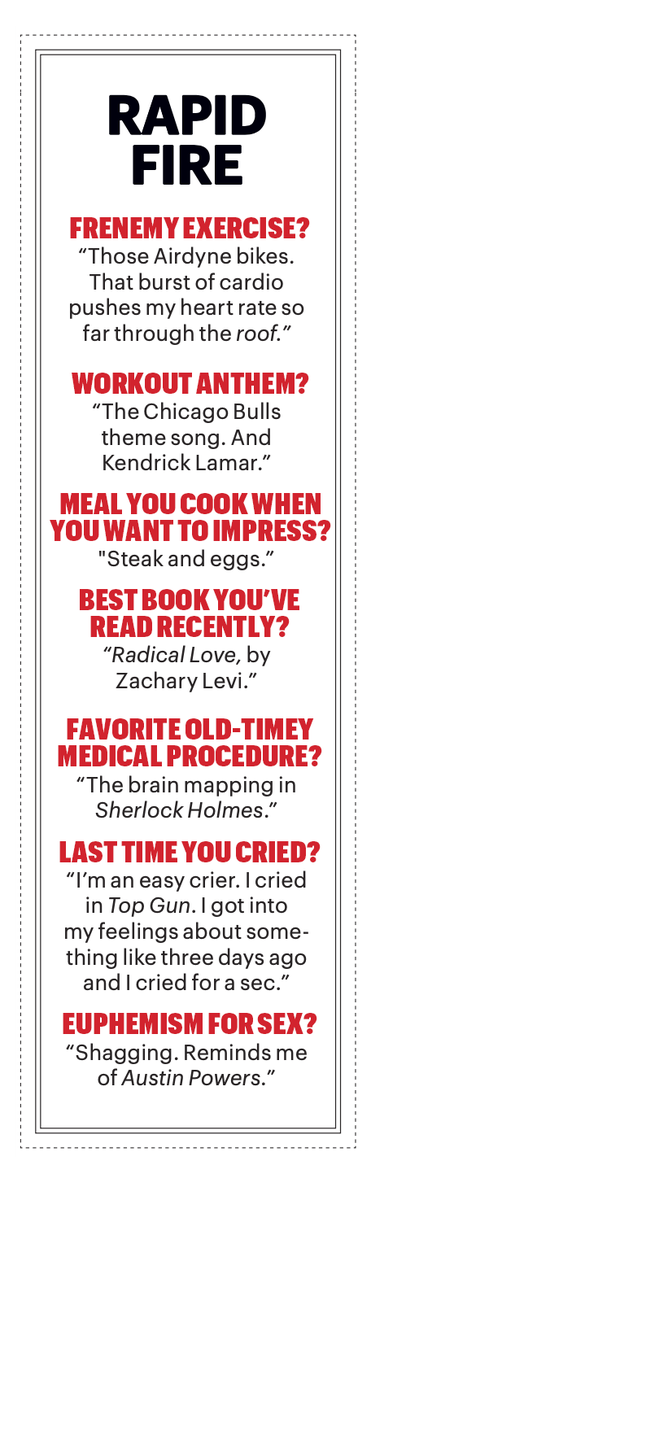
Efron read the script in an hour and a half. He liked the weight of a film set during the Vietnam War and how it balanced tension with humanity and humour. What’s more, he could relate to his character. “I can empathise with what he was going through, sitting in New York when all his close friends are on the front line,” he says. “It was the fastest decision I’d ever made.”
At this point, the seafood tower between us begins making a witchy bubbling sound. Efron talks over it for a second, but the noise draws my attention—the tower sounds like it’s about to erupt. “He gets the audience engaged through the humanity and the relationships,” he says of Farrelly before trailing off, sensing my distraction. Frustration flashes across his face, quickly replaced by amusement. He carefully moves the remaining Dungeness crabmeat from its dry-ice bath and places the bowl of dry ice on the table. But that isn’t much better. He then walks the dry ice over to one of the empty tables, faint icy breaths unspooling behind him. He tries to pick up where he left off; however, the distance has only aggravated the dry ice, which gurgles menacingly from across the room.
At last, a few bussers arrive and remove the seafood tower and the banished dry ice. The steaks appear, and Erin breezes in after them to ask Efron whether the A5 is the best he’s ever had. “It tastes like foie gras,” he says. The fat is so finely webbed throughout the beef that you can’t see it.
“See, that taste, and that feeling right there, that’s why I’m not vegan anymore,” he says. Then he turns serious again, eager to keep discussing The Greatest Beer Run Ever. He enjoyed working on this film, he continues, because it engaged him and challenged him. He felt enormous pressure to get the role right, in part because Chickie Donohue would be watching.
Sure, Efron had been able to find purpose in his himbo repertoire. He appreciates the “self-aware bro” description and discusses that kind of character (“somebody that’s learning, that’s listening, that has an open heart and mind”) with tenderness. But playing the fun-loving, self-aware bro is not a challenge for Zac Efron, who presents as a fun-loving, self-aware bro.
Efron seems poised to plunge into the ice-bath roles—the ones so challenging that they “conquer something deep within you”—but uncertain that people in the industry see him that way. Farrelly, who’d wanted to work with Efron ever since they met years ago, admitted that he probably wouldn’t have thought of him for The Greatest Beer Run Ever if he hadn’t seen him as Ted Bundy, an unlikable character Efron had to somehow make charming. “I realised, Well, this is a guy who wants to stretch,” the director recalls. “I didn’t realise how much he could stretch.”
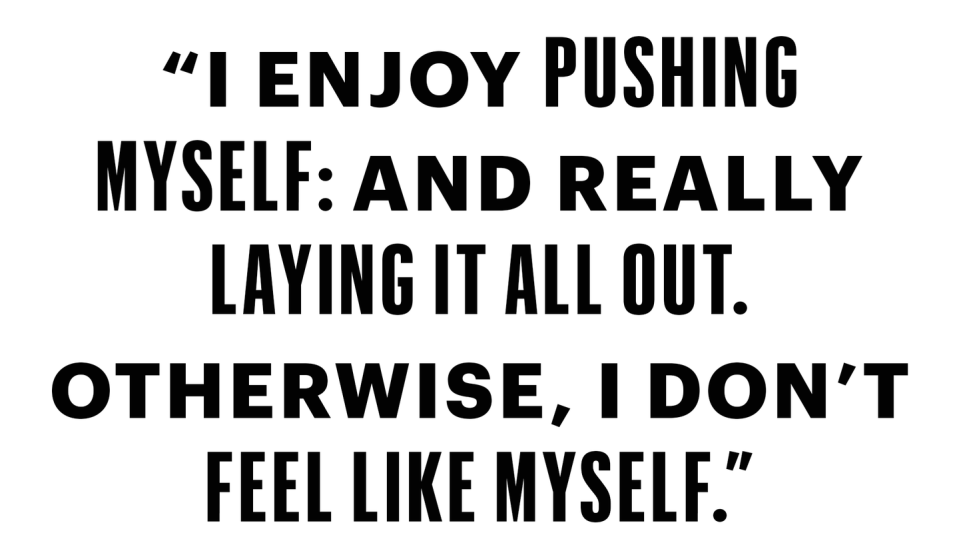
Efron didn’t come into the film as a “know-it-all,” Farrelly says, but rather as someone committed to portraying a different character from the “all-American kid” he’s often played. According to the director, several early viewers of The Greatest Beer Run Ever told him they were a ways into the film before they realised Zac Efron was Zac Efron. “He’s a little more edgy,” he says of the actor. “He disappears into the role.”
Before he can conquer transcendent roles, though, Efron must conquer his fans. As we leave the restaurant, he has already made one (well-earned) birthday video for Erin’s daughter when a middle-aged man chases him down to ask if he might take a photo with his birthday daughter. Efron accepts the request with gusto. The man races back to his table and returns with two teenage girls. Efron poses, smiling, with the birthday daughter and gamely asks the non-birthday daughter standing nearby if she would like a photo as well. She would, she says, “but can we take a selfie?”
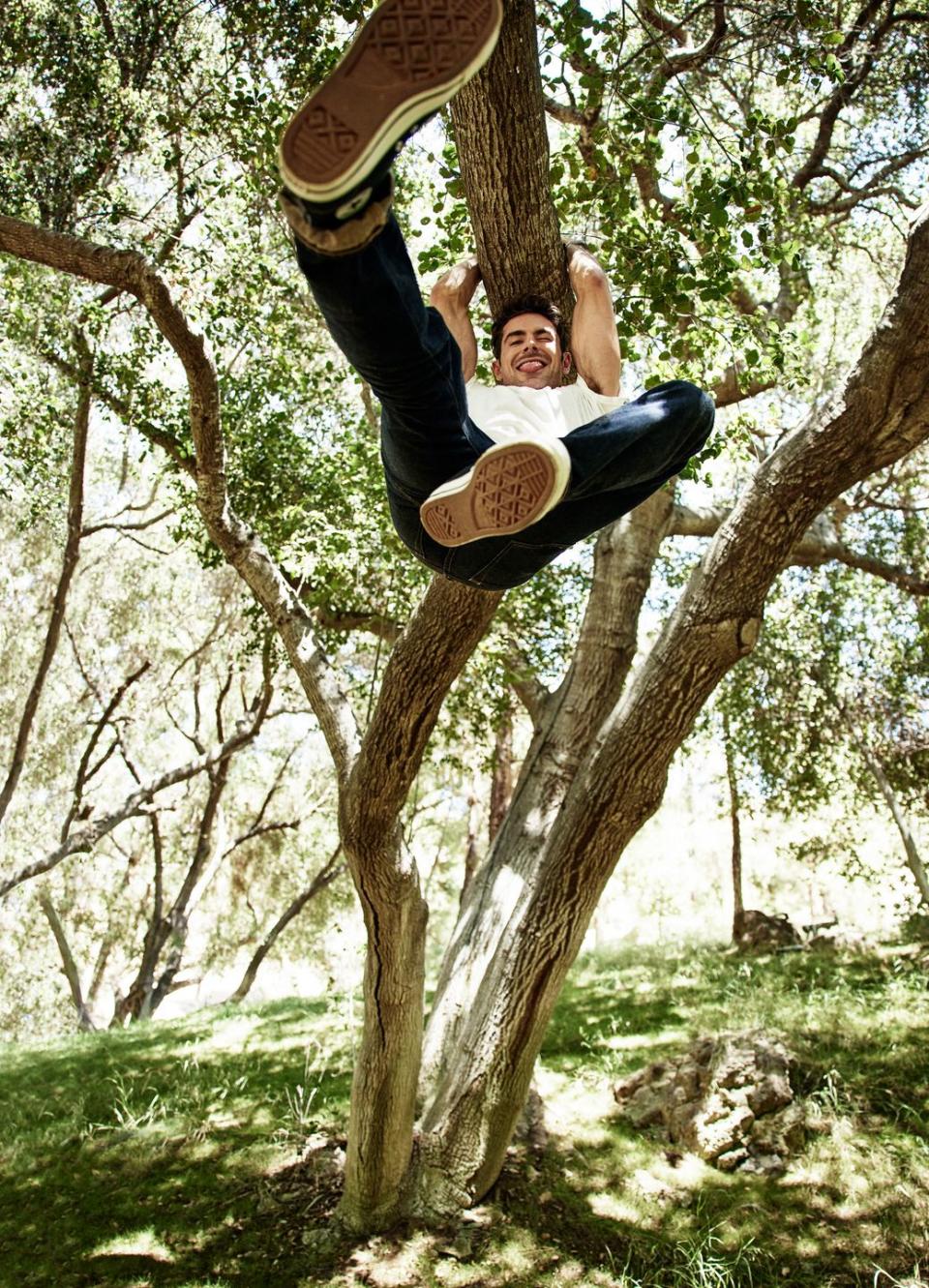
Having spent the past few hours interrogating Efron, I have been primed to detect some discomfort under his jocularity. And the second the father and his brood turn away, the actor, after a hasty goodbye, literally runs away. In an instant, he has disappeared around the corner of the building in search of the valet.
When the valet returns to the podium after sending Efron off, he beckons me over, looking a little flustered. “I told him he was funny,” he says ruefully, “but now I’m like, Ah, that’s not it!” Efron is funny, but the valet is convinced he’s committed a faux pas. “He could be like the Twilight guy,” he says. Robert Pattinson? “Yeah, Robert Pattinson. If he were in those movies, he’d kill it! Oscar movies! Tell him!”
The valet has—remarkably, given his presumably brief interaction with Efron—perceived him exactly as he seems to want to be perceived. Maybe everyone else will, too.
This story appears in the October 2022 issue of Men's Health
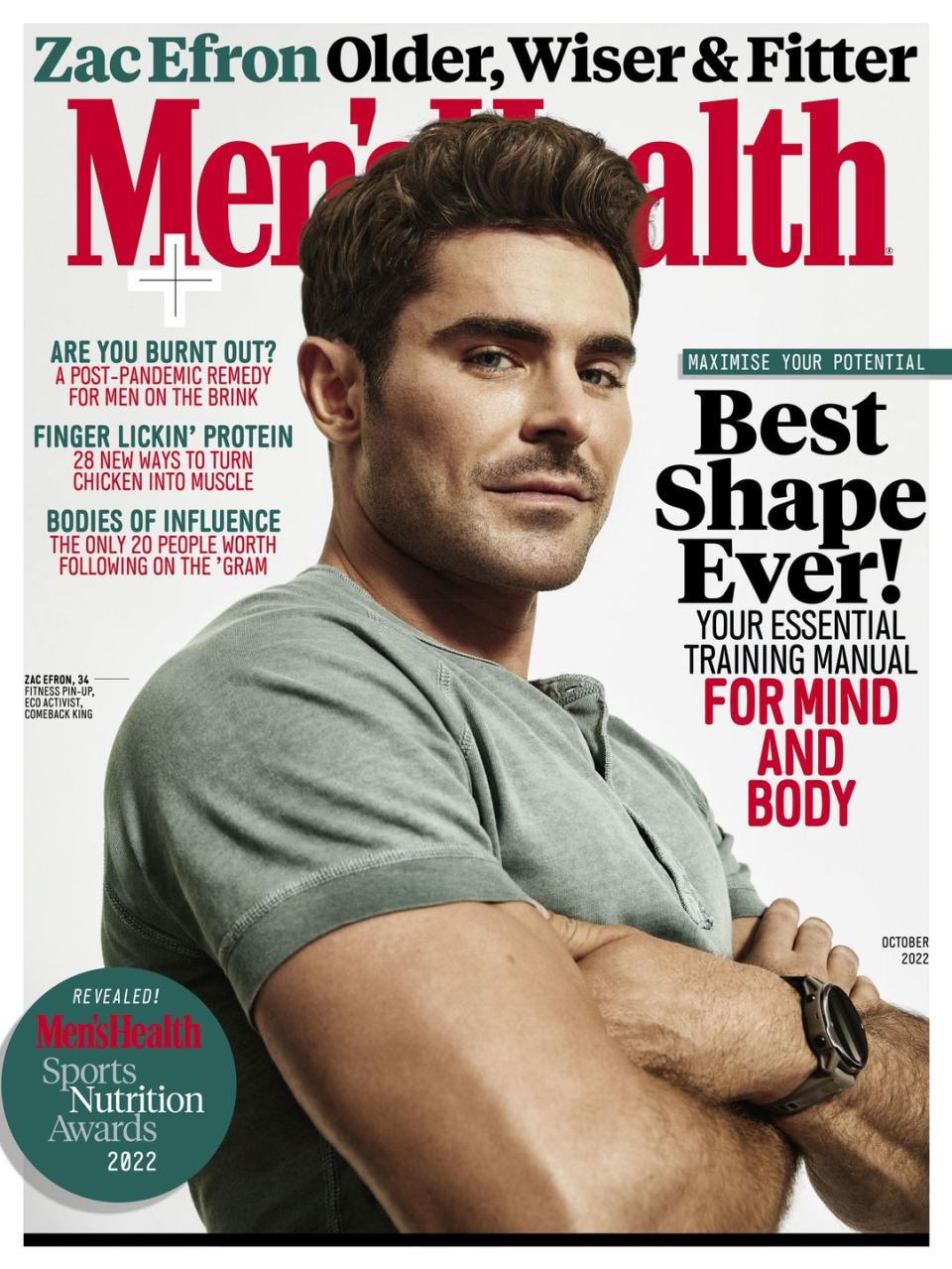
You Might Also Like


